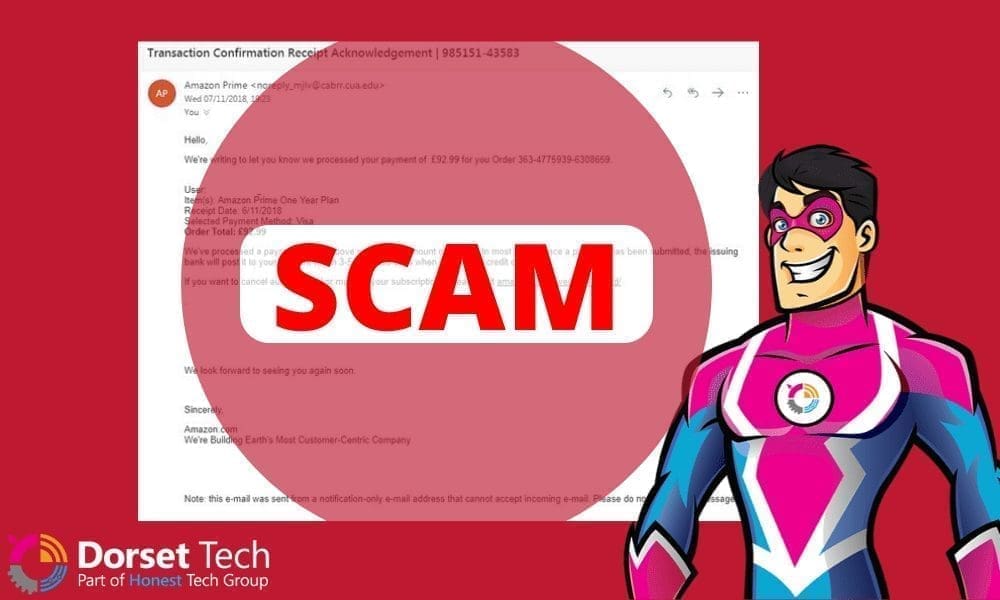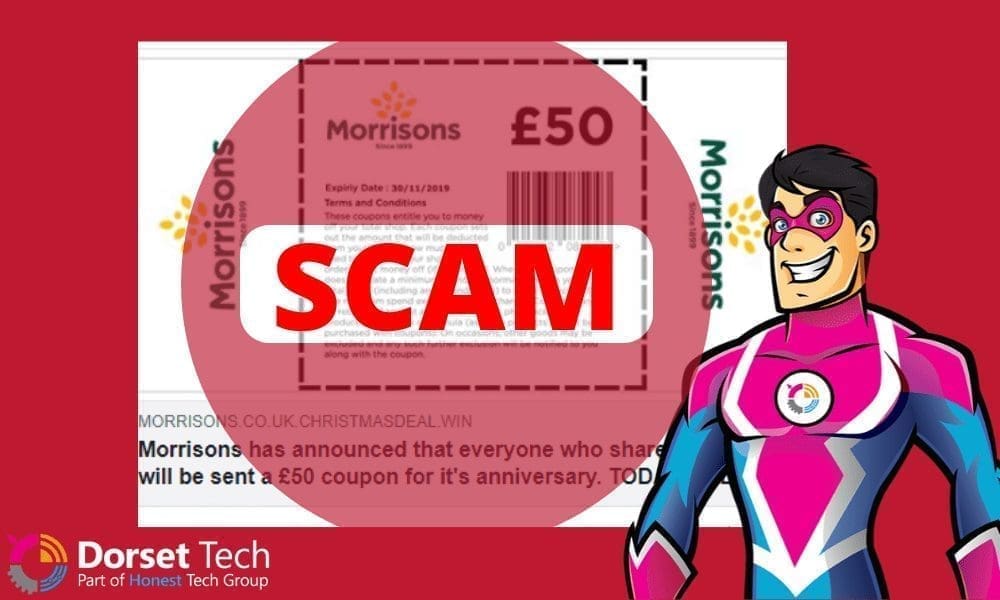
BLACK FRIDAY SCAMS: Not every offer is genuine – or cheap.
Not every offer you see online or receive by email is genuine, nor are some of the prices as cheap as they appear. As we are gearing up to the Christmas shopping season, here’s some tips to keep you safe from scammers when shopping online, particularly on Black Friday. But first…
What is Black Friday?
Black Friday originated in the United States and, in some cases, leads to pandemonium, injury, uncharacteristically bad behaviour and greed from our friends across the pond. This is because stores offer massive savings on must-have items that “won’t be repeated ever” so you have to snap up the bargain TODAY! It’s the Friday following Thanksgiving Day, which is celebrated on the fourth Thursday of November. The day after Thanksgiving has been regarded as the beginning of America’s Christmas shopping season since 1952 according to Wikipedia, although the term “Black Friday” wasn’t widely used until recently.
Fortunately, over here in the UK we seem to be a little more civilised about such things – so far!
We tend to do most of our Black Friday shopping online as a result of receiving emails or texts to our mobiles from our favourite brands and stores, much more civilised, in typical British fashion, what ho?
The problem is that fraudsters and scammers are getting ever more sophisticated and finding new ways to relieve you of your cash, often for nothing in return. If you are are a victim of such a scam and you’re lucky, you might end up with a substandard/faulty item or a box that looks genuine but really isn’t and, when you open it, it’s filled with stuff that creates the weight and feel of the product you think you’ve ordered. So, how can you protect yourself?
How can you spot a Black Friday scam?
Firstly, ask yourself some basic questions – as you would if you you were physically in a shop buying an item. You’d examine it, you’d ask questions and maybe ask for a demo wouldn’t you? You obviously can’t do that with an email, so what questions should you ask yourself?
- have I dealt with the company before?
- am I really interested interested, do I need the product?
- why have they contacted me?
- is the price genuinely discounted? Research, research, research – and speak to someone on the phone if you can. In any case, Google is your friend as are review sites.
- Is the email genuine? Do links go to where you’d reasonably expect? Often, by hovering over the links in the email, you can see where the click will take you.
- Is the website genuine? If you’re going to visit the website, check that the address starts with https: and there’s a padlock visible. Type the address yourself into your web browser.
Be especially careful if an offer comes through social media, too. Often, there’s no way to tell where it originated from.
What you can do to protect your money
It goes without saying, whenever you shop online – not just on Black Friday – you should be careful.
- Avoid transferring money straight from your bank account. Using your debit or credit card to pay could offer more protection. Think twice if they ask for payment by other methods.
- Trust your instincts. If it feels wrong, or seems too good to be true, it probably is. Google is your friend, as we said earlier.
- Check whether the price is GENUINELY discounted for Black Friday – all may not be as it seems, even from stores and brands you trust.
All of the advice in this article is good advice for when you’re shopping online, anyway, but if you have any concerns about your online transactions, speak to your bank or someone you trust.
At the time of writing, there’s onlynly 26 days until Christmas





















